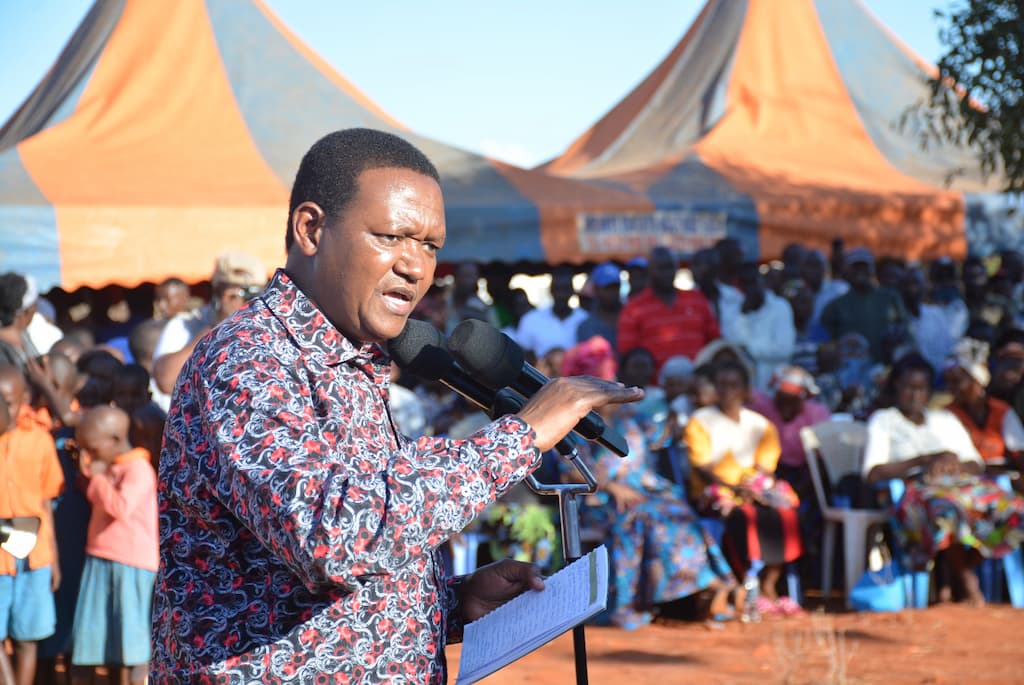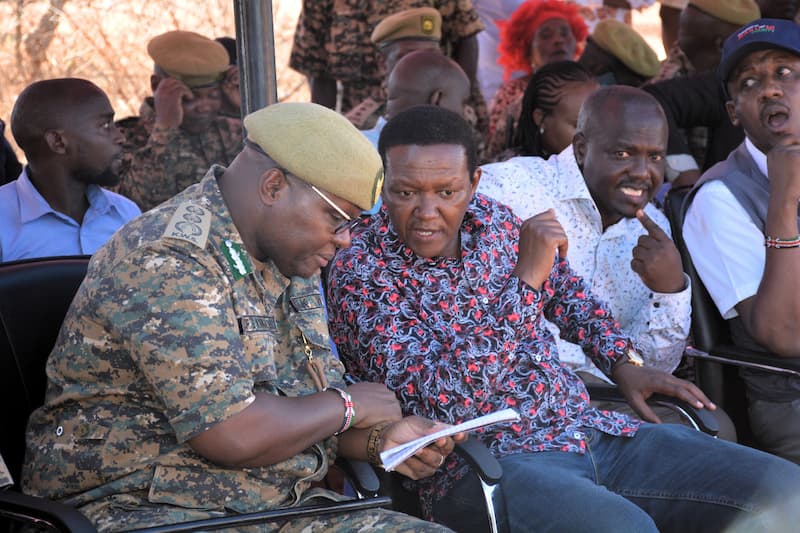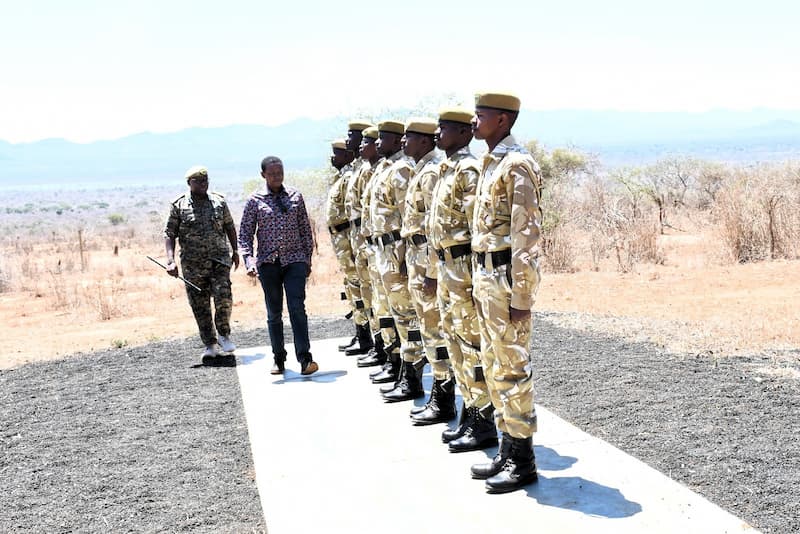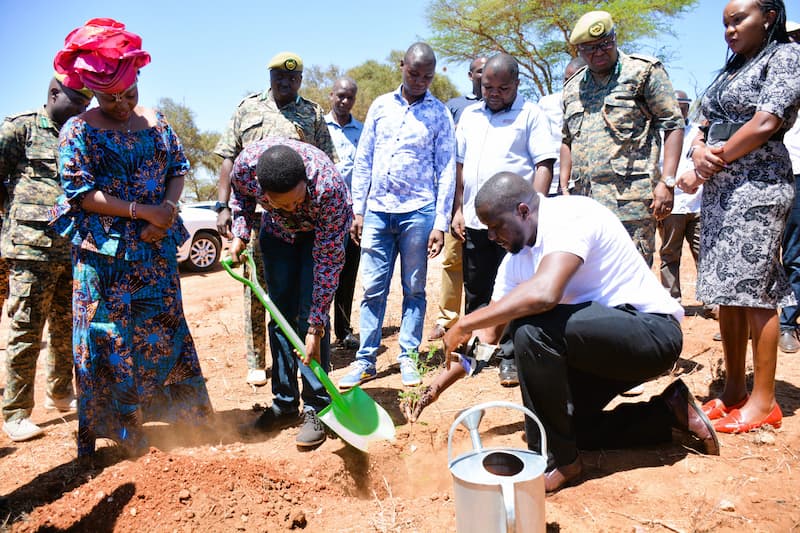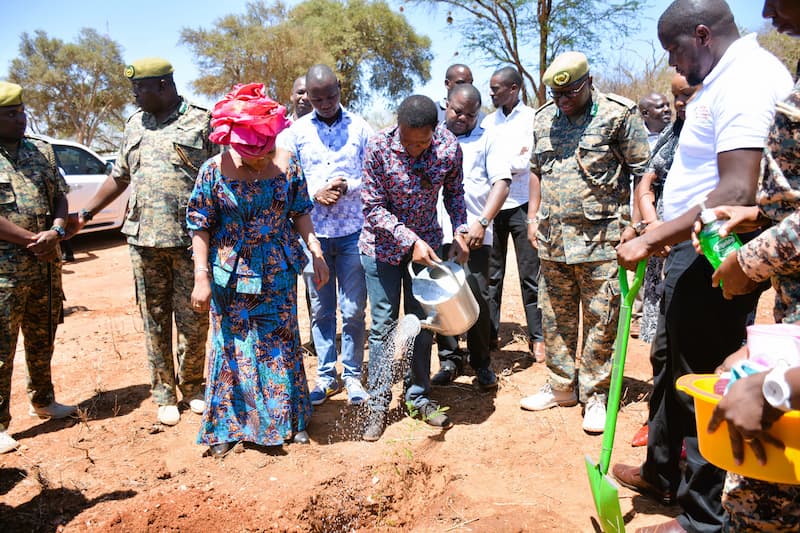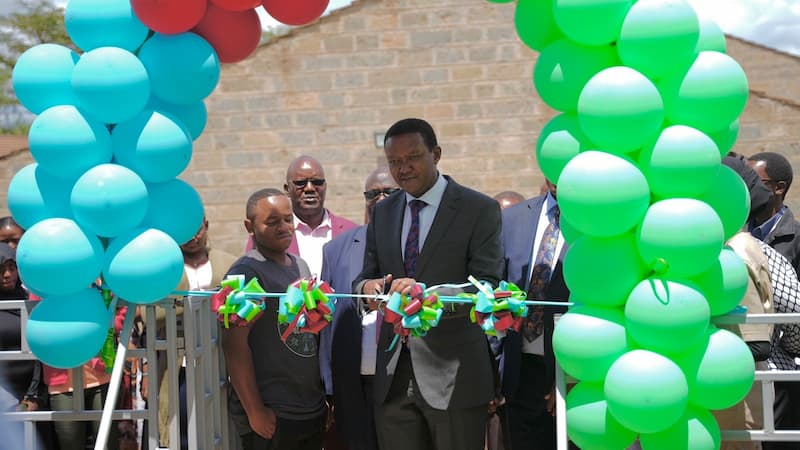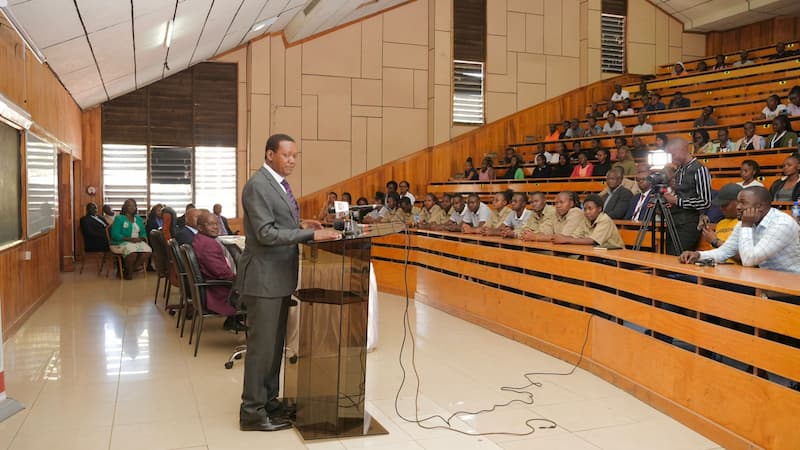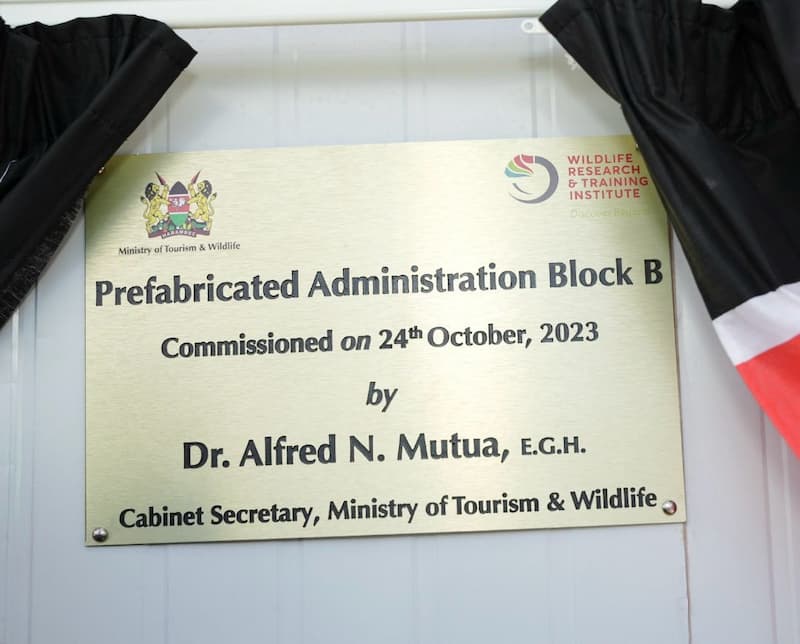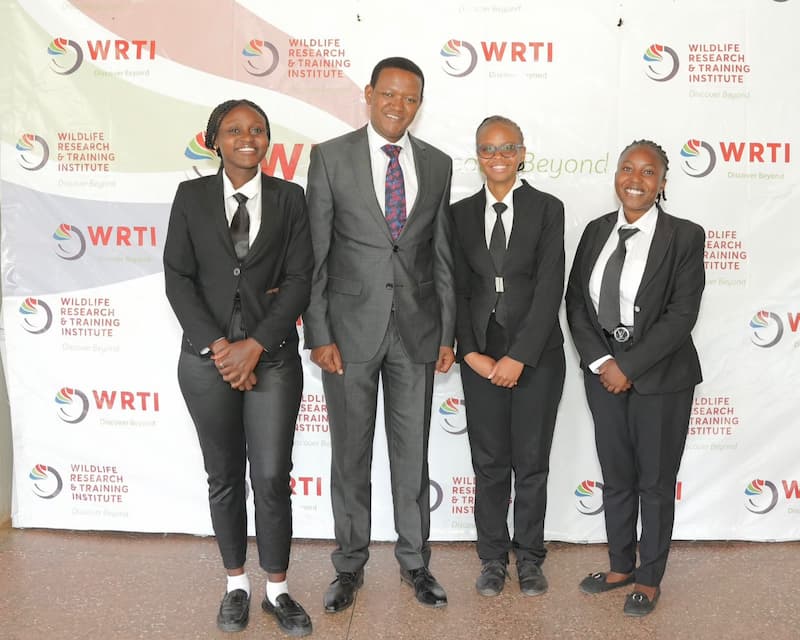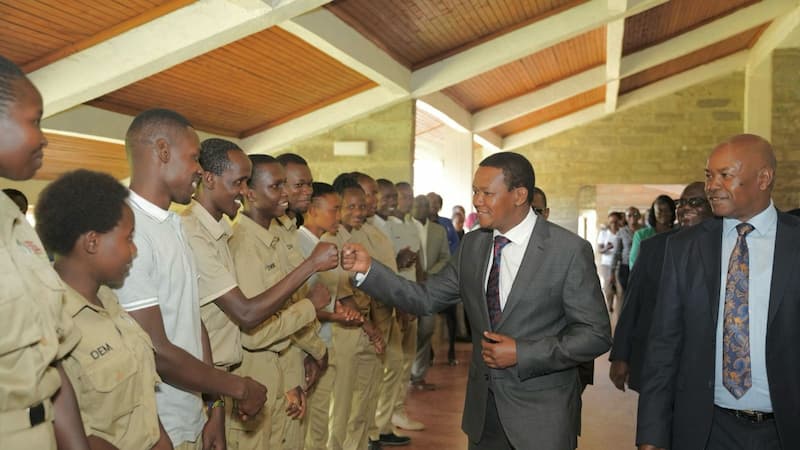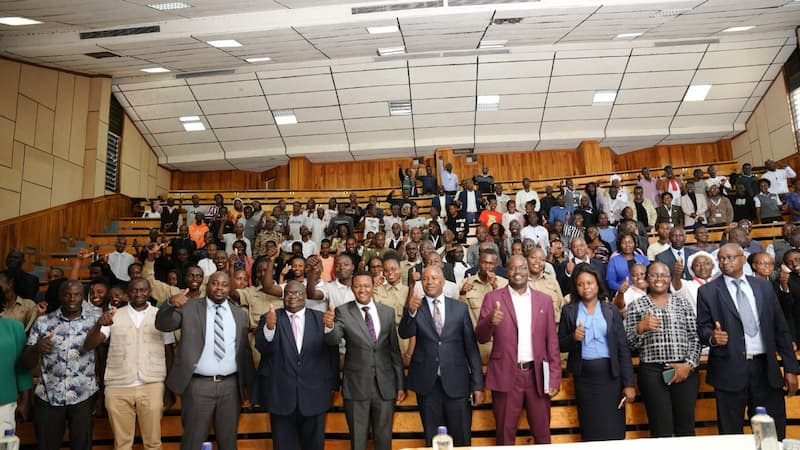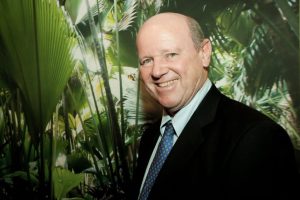23 October 2023
The Kenyan Government will prioritise the fencing of all National Parks and sanctuaries as one of the measures to minimise human-wildlife conflict. Already the national government in partnership with Makueni county government is spending 50 million shillings on a 65 kilometres long electric fence along the Ngai Ndeithya conservancy. Another 100 million shillings is needed to complete the project.
Tourism and wildlife Cabinet Secretary Dr. Alfred Mutua began countrywide visits to assess the level of human-wildlife conflict with a tour of Kibwezi and Mtito-Andei regions. Earlier he held a closed-door meeting with leaders from counties neighbouring the Tsavo West National Park.
In recent years, human-wildlife conflict has become a growing concern in these areas. As the human population increased and encroached upon traditional wildlife habitats, conflicts have surged. Crop damage, livestock predation and even occasional attacks on villagers by wildlife is among the issues that require urgent attention. The CS also visited homesteads where he heard from those who have been affected by human-wildlife conflict and discussed issues around compensation.
“My visit extended beyond the condolences; it was a moment of reflection on the profound impact of human-wildlife conflict on the lives of individuals and communities. This complex issue strikes at the heart of coexistence between people and wildlife, and it was crucial to be on the ground, listening to the voices of those directly affected”, he said.
The CS visited the heartbroken widow of Mzee Ndeleva Matuti who was recently trampled to death by an elephant. “This visit allowed me to express my deepest condolences in person. Mzee Matuti’s tragic loss to an elephant attack was a stark reminder of the challenging issue of human-wildlife conflict that our communities face”, said CS Mutua.
Dr. Mutua told a gathering at Kyusyani secondary school that his Ministry and the Kenya Wildlife Service will soon launch mobile cinema units to be used in the sensitization of communities and encourage co-existence between humans and wildlife. “To achieve this harmony, communities need to start seeing the benefits that accrue from conservation,” said the CS. The CS told KWS officers to work towards Improving relations with local communities by responding rapidly to distress calls and making deliberate efforts to recruit and train local conservationists.
The CS regretted failure by the government to pay compensation to victims of human-wildlife conflict within a reasonable time frame. “This financial year we have budgeted for just 1.1 billion shillings to compensate the victims against claims of over 5.7 billion shillings, some as old as 15 years’, said the CS.
The CS is confident that the government’s resolve to addressing the issue of human-wildlife conflict is stronger than ever. “We’re determined to work collaboratively with local communities, conservationists, and relevant authorities to develop practical solutions that ensure the coexistence of humans and wildlife”, Dr. Mutua said.
The CS announced that the Kenya wildlife service will commence the process of recruiting 1500 new rangers to address the current shortage which has left some key parks and animal sanctuaries inadequately manned.
The CS was accompanied during the tour by Makueni Governor H.E. Mutula Kilonzo Jnr, Kibwezi East M.P Hon. Jessica Mbalu, Kibwezi West M.P Hon. Mwengi Mutuse, Makueni Deputy Governor Hon. Lucy Mulili, members from the county assembly of Makueni, KWS DG Dr. Erastus Kanga and other senior KWS and county officials.
In a related development, Dr. Alfred Mutua paid a visit to the Wildlife Research and Training Institute in Naivasha where he called for a radical shift in local research methodologies to tailor them with finding quick solutions to the country’s day-to-day problems. Speaking during a familiarization tour of the Wildlife Training and Research institute, CS Mutua says applied research is what will help Kenya solve her problems.
Dr. Mutua also inaugurated several new projects and initiatives at the institute funded by the Tourism Promotion Fund to the tune of 95 million shillings. The CS challenged the institute to change its research model and make it practical. “The institute ought to embark on serious research leading to the manufacture of Kenyan made anti snake venom”, he said.
Dr. Mutua said incidences of human-wildlife conflict have been on an upward trajectory since 2020. He attributed this trend to climate change. ‘To sort out the problem of human-wildlife conflict, we need a programme that encourages communities and empowers them on the best way of co-existing with wildlife,” said the CS.
He announced that Kenya wildlife service will invest in mobile units that will be used within communities where wildlife is found to educate them on how to coexist with wildlife.
“68 per cent of our wildlife is outside national parks and to protect them, we need to involve local communities”, the CS said.

